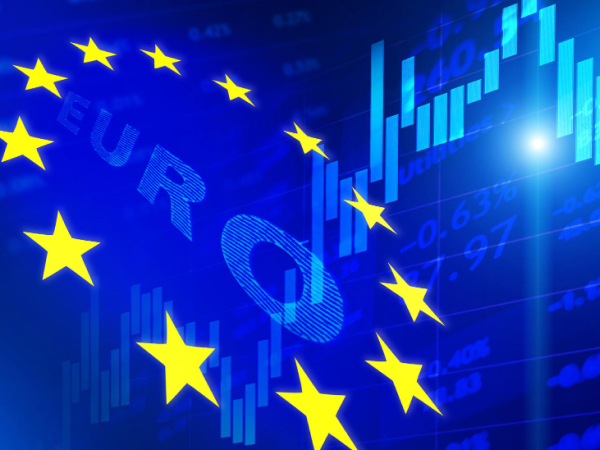- 13 minutes read
- History and Evolution of EMI Regulation
- The UK and global size of the Digital Payments market
- What is an e-money license?
- What is electronic money?
- What are the types of EMI?
- How can Fintech Harbor help you get an Electronic Money Institution License in the UK?
- What are the UK EMI license requirements?
- Pitfalls to Consider
- The process of obtaining an UK Electronic Money Institution License
- Comparative analysis of requirements for EMI in the UK versus other jurisdictions
- Benefits of an UK EMI license
- FAQ
History and Evolution of EMI Regulation
In the late 1990s, when the Internet was growing dramatically, there was a huge need for user-friendly means of online payments. One of the first payment systems that provided a solution in this area was PayPal, founded by Elon Musk and his partners.
While traditional financial institutions such as Bank of America and Citigroup have been slow to adapt their services for online commerce, PayPal offered an integratable payment system that was attractive to new marketplaces and auctions such as eBay.
This led to new online payment models, adopted in the United States, and Europe including the United Kingdom, Asia, and Latin America.
Before 2000 the EU and the UK did not have a unified approach to the regulation of payment systems with a PayPal-like business model and each country had its own legislation and requirements for obtaining a license, creating regulatory uncertainty.
The first successful attempt to harmonize legislation for payment systems like PayPal was the EU Electronic Money Directive (EMD) (2000/46/EC), introduced in 2000, and its subsequent revision known as EMD2 (2009/110/EC), issued in 2009. The EMD was the first directive that introduced the definition of an electronic money institution. According to Article 2 of EMD2, an “e-money institution” is “a legal entity that has been granted authorisation to issue e-money”.
One of the first companies in the United Kingdom with a similar business model was Skrill, which operates in more than 100 countries, works with more than 40 currencies and has an active UK EMI license.
Subsequently, PayPal which started our story has repeatedly obtained an EMI license in the UK. The latest UK e-money license was obtained by PayPal UK Ltd in October 2023.
PayPal hasn’t just changed the market landscape but has become its part.
Quickly select a jurisdiction and register your company anywhere in the world online

The UK and global size of the Digital Payments market
For a better understanding of the importance of EMIs in the UK and globally, we have examined some key data from the Digital Payments market, where EMIs are a key participant.
- Projected Transaction Value (2023): According to Statista’s latest reports, the total transaction value in the Digital Payments market is projected to reach US$9.46 trillion worldwide and US$439.30 billion in the United Kingdom in 2023.
- Projected Development (2023-2027): The Digital Payments market is expected to grow at a Compound Annual Growth Rate (CAGR) of 11.80% globally, and 13.97% in the United Kingdom from 2023 to 2027. With this rate of growth, the projected total amount for the global market is forecasted to reach US$14.78 trillion, and for the UK market, it is estimated to increase to US$741.30 billion by 2027.
- Market Volume Comparison (2023): The transaction volume in the UK residential real estate market is projected to reach US$102.00 billion in 2023. This means that transaction volume in the UK digital payments market will be more than 4 times larger than the transaction volume of the residential real estate market.
What is an e-money license?
The Electronic Money Institution (EMI) licence is a financial licence that allows a company to issue electronic money and provide related payment services to its customers.
Along with the banking license, the UK EMI license is one of the most demanded licenses in the financial industry, as it allows its holders to provide services of issuing and managing electronic money, making payments, as well as offering innovative financial services.
According to Article 32 of the Electronic Money Regulations, 2011, EMIs may provide the following services:
- Issuance of electronic money.
- Provision of payment services.
- Operation of payment systems.
- Conducting foreign exchange services.
- Safe-keeping activities.
- Data storage and processing services.
- Providing additional services closely related to the issuance of electronic money or provision of payment services.
- Maintaining payment accounts for transactions not related to e-money issuance.
The ability to provide all these services under a single license creates a wide range of EMI license usage scenarios for businesses ranging from highly functional digital wallets and payment systems to large payment aggregators.
What is electronic money?
According to Article 2(1) of the Electronic Money Regulations, 2011,“electronic money” means electronically stored monetary value as represented by a claim on the electronic money issuer which
- is issued on receipt of funds for the purpose of making payment transactions.
- is accepted by a person other than the electronic money issuer.
In simple terms, electronic money is digital money used for online transactions. From a technical perspective, special software issues electronic money. When someone funds an electronic wallet or account, the software converts an equivalent amount of money into digital form.
It is essential not to confuse electronic money with cryptocurrencies.
According to Article 39 of the Electronic Money Regulations, 2011 EMI is obliged upon receipt of funds from a user to:
- immediately issue electronic money at par value;
- at the request of the holder of the electronic money, redeem it at any time.

What are the types of EMI?
Electronic Money Regulations, 2011 and EMD 2 define 2 types of EMIs:
- Authorized electronic money institution (AEMI or EMI).
- Small electronic money institution (Small EMI).
These types of EMIs do not differ either functionally or in their duration (both types of EMIs are unlimited in duration and do not need renewal).
The key difference relates to the requirements for minimum initial capital and transaction limit.
According to the Electronic Money Regulations 2011, Schedule 2, Part 1, and Article 19:
For an Electronic Money Institution:
- The required minimum initial capital is €350.000 or 2% of the e-money volume.
- Institutions must maintain an amount of initial capital sufficient for their activities.
- If the institution’s activities generate an e-money volume of €500.000 or more, the institution must maintain initial capital of at least 2% of this volume.
- If the institution’s business history does not allow for average e-money calculation, they must estimate it based on their business plan, accommodating any adjustments required by the Financial Conduct Authority.
In accordance with Article 13 of the UK Electronic Money Institution Regulations:
- The Small EMI license applies if the total business activities prior to registration do not result in an average e-money balance exceeding €5.000.000 immediately before registration.
- The total amount of transactions per month, averaged for the year before application, must not exceed €3.000.000.
According to Article 16 of the Electronic Money Regulations, 2011, if a Small EMI no longer complies with the transaction limit requirement (average balances not exceeding €5.000.000 and transactions not exceeding €3.000.000 per month), the institution must apply for EMI status within 30 days.
How can Fintech Harbor help you get an Electronic Money Institution License in the UK?
Fintech regulation in general and EMI in particular is one of our core specializations. We have extensive experience in obtaining licenses in the United Kingdom and globally, including but not limited to the European Union, Asia, the UAE, and multiple offshore jurisdictions.
Our advantages include not only significant experience in EMI projects but also related experience in the legal regulation of traditional financial institutions and virtual assets.

What are the UK EMI license requirements?
In the United Kingdom, EMI licenses are issued by the Financial Conduct Authority (FCA), which is responsible for regulating financial companies.
According to the UK Electronic Money Regulations and FCA guidelines, the requirements for EMI applicants include:
- Minimum initial capital:
– For EMIs from €350.000 or 2% of e-money volume (whichever is higher).
– For Small EMIs at least 2% of the e-money volume.
- Business plan outlining the processes and resources to ensure the stable functioning of the EMI (including a forecast budget calculation for the first 3 years).
- System of risk management and internal control over EMI.
- UK-registered company with its main office in the UK or a UK branch.
- Applicants must ensure that persons holding significant shareholdings, directors, and managers meet the requirements.
- Adequate measures to safeguard the funds of e-money holders.
- Compliance with the Money Laundering Regulations 2007.
Pitfalls to Consider
In addition to the standard requirements provided by United Kingdom legislation, in practice, the following requirements also apply:
- Before applying for an EMI, a company in the United Kingdom must employ a minimum of 5 employees, including a CEO, Compliance Officer, CFO, and 2 resident directors with experience in payment systems and financial institutions on a full-time basis.
- The recommended authorized capital of the company should be approximately £1.000.000. These funds can be reduced but must not fall below 2% of the e-money volume and are required to cover the company’s expenses for the entire period of obtaining an EMI license.
- It is recommended that the Financial Forecast should be calculated for 5 years.
The process of obtaining an UK Electronic Money Institution License
The process of obtaining an EMI license in the United Kingdom includes 6 main steps:
- Assessment of the client’s business model and determination of the optimal legal structure
● Registration of the company in the UK, including preparation of all necessary documents to ensure that the company is properly incorporated.
● Preparation of an application to obtain an Electronic Money Institution License UK. This stage includes the preparation of all necessary documents for obtaining an EMI license.
● Assessment of the application and subsequent communication with the Financial Conduct Authority ( answering questions, preparation of additional documents).
● Approval of the application and inclusion of the company in the EMI register.
As a result of the work, an EMI license will be obtained in the United Kingdom.
Comparative analysis of requirements for EMI in the UK versus other jurisdictions
To determine whether an EMI license in the UK is the optimal solution for you, we have compared the requirements and opportunities of this license with EMI in other jurisdictions by all key criteria.
For convenience, we have included the following highlights in the comparative table:
- Green means Advantages.
- LIght Blue means Standard requirements.
- Red means Disadvantages.
| Jurisdiction | United Kingdom | Lithuania | Malta | Singapore |
| Minimum Initial Capital | According to the Electronic Money Regulations 2011, Schedule 2, Part 1, and Article 19: For an Electronic Money Institution (EMI):
| In accordance with Articles 14 and 22 of the Republic of Lithuania Law on Electronic Money and Electronic Money Institutions and the Bank of Lithuania’s EMI guide: For an Electronic Money Institution (EMI):
| According to the Sections 18, 21, and 28 of the Financial Institutions Rules of the Malta Financial Services Authority (MFSA): For an Electronic Money Institution (EMI):
| In compliance with the clarifications from the Monetary Authority of Singapore: For a Standard Payment Institution (SPI) license:
|
| Jurisdiction | United Kingdom | Lithuania | Malta | Singapore |
| Permitted EMI activities | According to Section 32 of the Electronic Money Regulations, 2011, EMIs may provide the following services:
| In accordance with Article 12 of the Law on Electronic Money and Electronic Money Institutions, EMIs may conduct the following activities:
| In accordance with Article 8 of the Financial Institutions Act, CAP. 376 in Malta, EMIs are permitted to engage in the following activities:
| In accordance with Table A3-1 in the guidelines on licensing for payment service providers, SPIs and MPIs can provide the following services:
|
| Jurisdiction | United Kingdom | Lithuania | Malta | Singapore |
| Requirements for the applicant | According to Article 6 of the Electronic Money Regulations 2011, the following conditions apply for the authorization of EMIs:
| Under Article 13 of the Lithuanian Electronic Money Institution Law:
| In accordance with Articles 8, 10, and 11 of the Financial Institutions Act, CAP. 376 in Malta, the requirements for an EMI applicant are:
| In accordance with the clarification of the Monetary Authority of Singapore, the following requirements apply for SPI and MPI licenses:
|
| Jurisdiction | United Kingdom | Lithuania | Malta | Singapore |
| Transaction Limit for Small EMI | In accordance with Article 13 of the UK Electronic Money Institution Regulations:
| In accordance with Article 14 of the Law on Electronic Money and EMI, the Bank of Lithuania's EMI guide, and Annex 3 of the Resolution of the Bank of Lithuania (dated June 12, 2018, No 03-100):
| In accordance with Section 26 of the MFSA's Financial Institutions Rules:
| In compliance with Section 6 of the Payment Services Act 2019:
|
| Jurisdiction | United Kingdom | Lithuania | Malta | Singapore |
| Passportization |
|
|
|
|
| Jurisdiction | United Kingdom | Lithuania | Malta | Singapore |
| Marketing of services in the EU |
| Upon notification by the national regulator, an EU EMI license permits:
| Upon notification by the national regulator, an EU EMI license permits:
|
|
| Jurisdiction | United Kingdom | Lithuania | Malta | Singapore |
| Regulatory Stability | No changes in legislation and requirements for obtaining an EMI license are expected in the next few years. |
|
|
|
| Jurisdiction | United Kingdom | Lithuania | Malta | Singapore |
| Corporate income tax rates |
|
| The general tax rate is 35%. After the company pays the tax and distributes dividends, its shareholders are entitled to a refund of the corporate tax paid by the company:
|
|
| Jurisdiction | United Kingdom | Lithuania | Malta | Singapore |
| Potential Customers |
|
|
|
|
- Electronic Money Regulations 2011 https://www.legislation.gov.uk/uksi/2011/99/contents/made
- Republic of Lithuania Law on Electronic Money and EMIs
http://surl.li/jvhgq - The Bank of Lithuania’s EMI guide on EMI
https://www.lb.lt/en/authorisation-of-electronic-money-institutions#ex-1-11 - Resolution of the Bank of Lithuania (dated June 12, 2018, No 03-100)
http://surl.li/jvhgc
- Financial Institutions Act, CAP. 376
https://legislation.mt/eli/cap/376/eng - MFSA Financial Institution Rules
https://www.mfsa.mt/wp-content/uploads/2018/12/20110712-FIR-03.pdf
- Payment Services Act 2019
https://sso.agc.gov.sg/Acts-Supp/2-2019/Published/20190220?DocDate=20190220
Benefits of an UK EMI license
The key advantages of the UK EMI license over EMI licenses in other jurisdictions include:
- Regulatory stability.
- Reputation.
- Prominence and the possibility of simplified obtaining of Visa/ Mastercard Principal membership (for card issuance).
- On June 28, 2023, the European Union Commission unveiled proposals for Payment Services Directive 3 (PSD 3) and Payment Services Regulation, which will change the current regulation and requirements for EMI in the EU.
- In particular, Payment institutions providing e-money services will face an elevated initial capital requirement of €400.000 under PSD3, a substantial increase from the previous €350.000 threshold.
- Considering the above changes that will affect EMIs in all EU member states, we believe that obtaining an EMI in the UK s one of the best options due to the lack of regulatory uncertainty and lower requirements than under PSD 3.
FAQ
How do I get an e-money license UK?
The process of obtaining an EMI license in the United Kingdom includes 6 main steps:
- Assessment of the client’s business model and determination of the optimal legal structure
- Registration of the company in the UK, including preparation of all necessary documents to ensure that the company is properly incorporated.
- Preparation of an application to obtain an EMI license UK. This stage includes the preparation of all necessary documents for obtaining an EMI license.
- Assessment of the application and subsequent communication with the Financial Conduct Authority ( answering questions, preparation of additional documents).
- Approval of the application and inclusion of the company in the EMI register.
The approximate timeline to obtain an EMI license in the United Kingdom from A to Z takes from 9 to 15 months.
What does the UK e-money license allow?
According to Article 32 of the Electronic Money Regulations, 2011, EMIs may provide the following services:
- Issuance of electronic money.
- Provision of payment services.
- Operation of payment systems.
- Conducting foreign exchange services.
- Safe-keeping activities.
- Data storage and processing services.
- Providing additional services closely related to the issuance of electronic money or provision of payment services.
- Maintaining payment accounts for transactions not related to e-money issuance.
What documents are required?
The standard list of documents required for an Electronic Money Institution License UK includes:
- Processes for filing, monitoring, tracking and restricting access to sensitive payment data.
- Business continuity measures.
- The principles and definitions applicable to the collection of statistical data on performance, transaction and fraud.
- Security policy.
- Internal control mechanisms to comply with obligations in relation to money laundering and terrorist financing (AML/ CTF obligations).
- Details of your qualifying holdings (shareholders).
- Details of any outsourcing arrangements.
* The regulator (FCA) may request additional documents depending on the business model of each particular EMI.
What are the regulatory requirements for EMI applicants?
According to the UK Electronic Money Regulations, the requirements for EMI applicants include:
- Minimum initial capital:
– For EMIs from €350.000 or 2% of e-money volume (whichever is higher).
– For Small EMIs at least 2% of the e-money volume. - Business plan outlining the processes and resources to ensure the stable functioning of the EMI (including a forecast budget calculation for the first 3 years).
- System of risk management and internal control over EMI.
- UK-registered company with its main office in the UK or a UK branch.
- Applicants must ensure that persons holding significant shareholdings, directors, and managers meet the requirements.
- Adequate measures to safeguard the funds of e-money holders.
- Compliance with the Money Laundering Regulations 2007.













